Doonesbury by Garry Trudeau for June 01, 2012
Transcript:
Principal: Welcome back, Melissa. We're all so proud of you! Melissa: Thanks, Mr. Wilkes - it's hard to believe. Principal: Shouldn't be. You really turned your life around. When you were a student here, you always seemed ready to take someone's head off. Melissa: Still am, sir. Principal: Yes, but as a professional. It's an inspiring story!

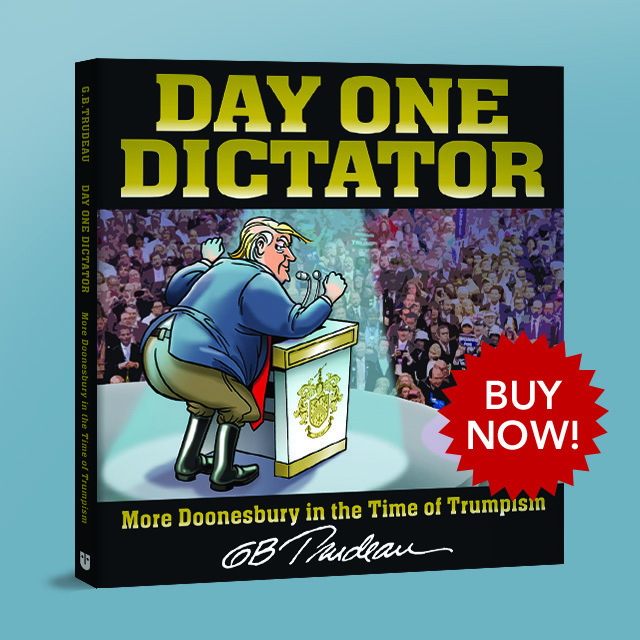
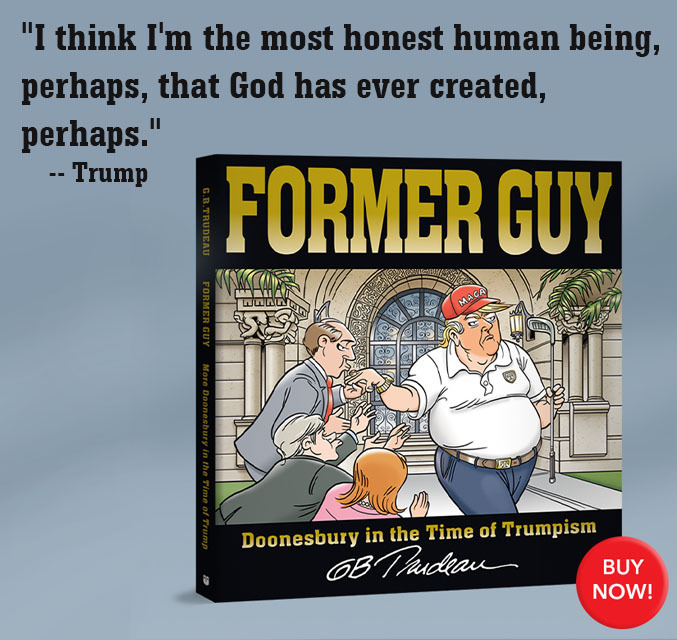

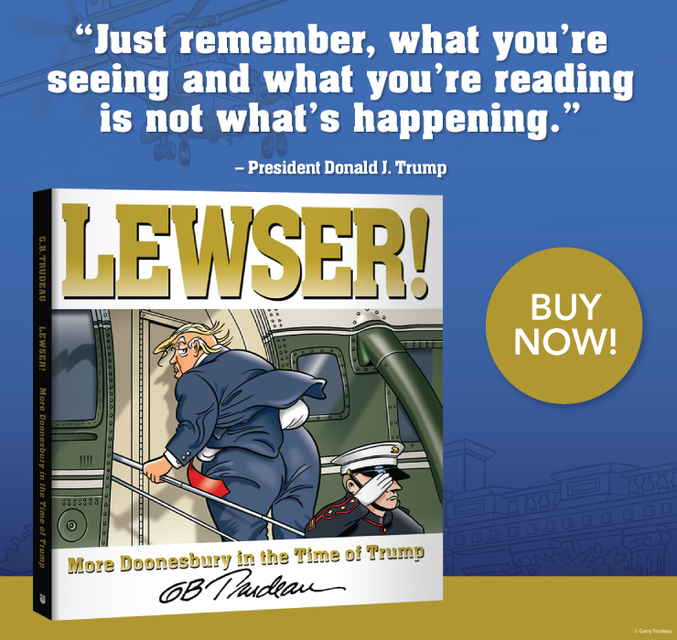
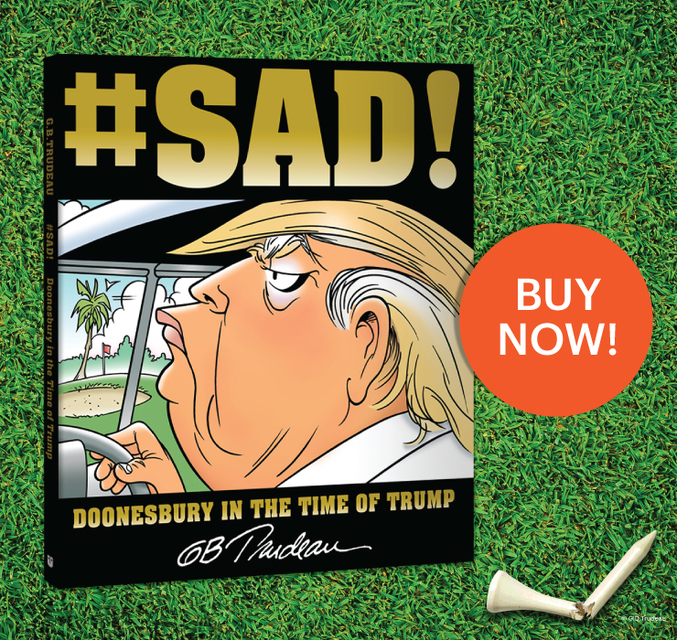

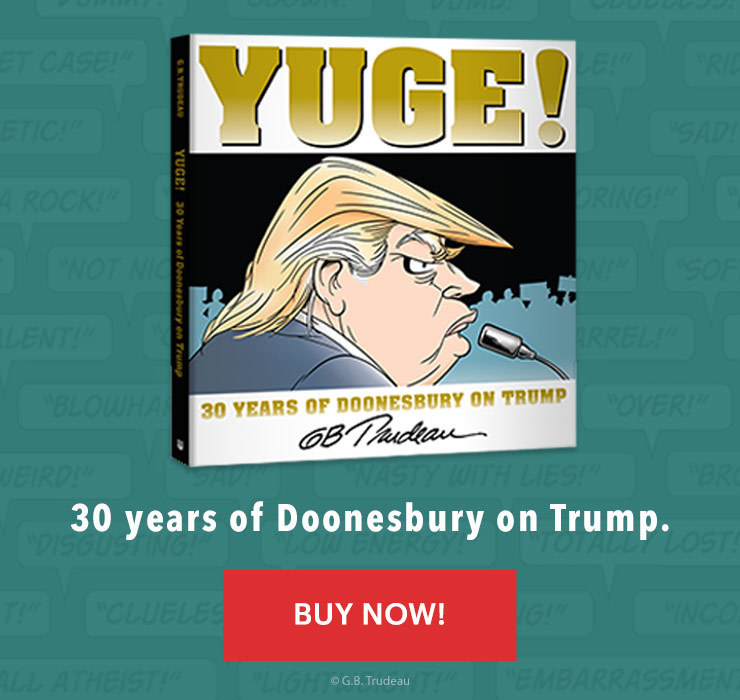

Here in Virginia in 1776 our Founding Fathers declared that “a well regulated militia, composed of the body of the people, trained to arms, is the proper, natural, and safe defense of a free state; that standing armies, in time of peace, should be avoided as dangerous to liberty; and that, in all cases, the military should be under strict subordination to, and be governed by, the civil power.” In 1776, they thought that the existence of a professional military was an unnecessary evil. If the people themselves were properly prepared to defend their country from invasion, then an efficient and effective force could be organized in time of emergency, and would be unneeded otherwise. They could not envision a free and moral country ever sending its troops into another country unless it were first invaded. Though it was finally acknowledged that a small cadre of trained officers, and a few thousand soldiers to police the Indian tribes and frontiers were necessary, and the Marines were sent to the Shores of Tripoli, the U.S. maintained one of the worlds smallest peacetime militaries from 1776 to 1939, and enlisted men were looked upon with some contempt in peacetime. They were paid a pittance, recruited mostly from recent immigrants and the unemployable. The U.S. Army has a peacetime desertion rate of 25% per annum in the 19th century, and officers stayed on active duty into their dotage as no pensions were granted. Professional soldiers, if not officers, were seen as mercenaries. All this changes somewhat in WWI, and completely in WWII. From 1941 on, we have been on a war footing continually. The Cold War hardly ended (as no one really expected it ever to) before we adopted another perpetual war (the war on terror). If our enemies did not exist, it would be necessary to invent them. The Federal Government has grown gigantically in the last 100 years, chiefly owing to the expansion of its police and defense powers. Once it was understood than wishing for a small weak federal government and wishing for a small weak military logically went hand in hand, as the latter is the instrument of the former. And as for the military being under strict subordination to civil power, we have the confusion that leads people to call the President the Commander in Chief of the United States, rather than the C-in-C of the armed forces. The President is meant to be the C-in-C of the military, but he is also meant to be the SERVANT of the people. It is precisely because our military is no longer made up of the body of the people trained to arms, in which any and all might be called upon to serve, that we are so obsessive about “supporting the troops” and talking about their “patriotic service” out there “defending freedom”. I don’t know, perhaps someone can tell me, what percentage of our armed forces today joined up for selfless reasons of wishing to serve their nation in spite of having more lucrative and safe options, and what percentage joined up because, in spite of the risks, it was just what they wanted to do, or because it seemed the best career option open to them. For how many is it a job, even an attractive job, and for how many is it rather a matter of self-sacrifice? What exactly is the difference now between the patriot soldier and the mercenary soldier? I don’t mean to judge. Just wondering.